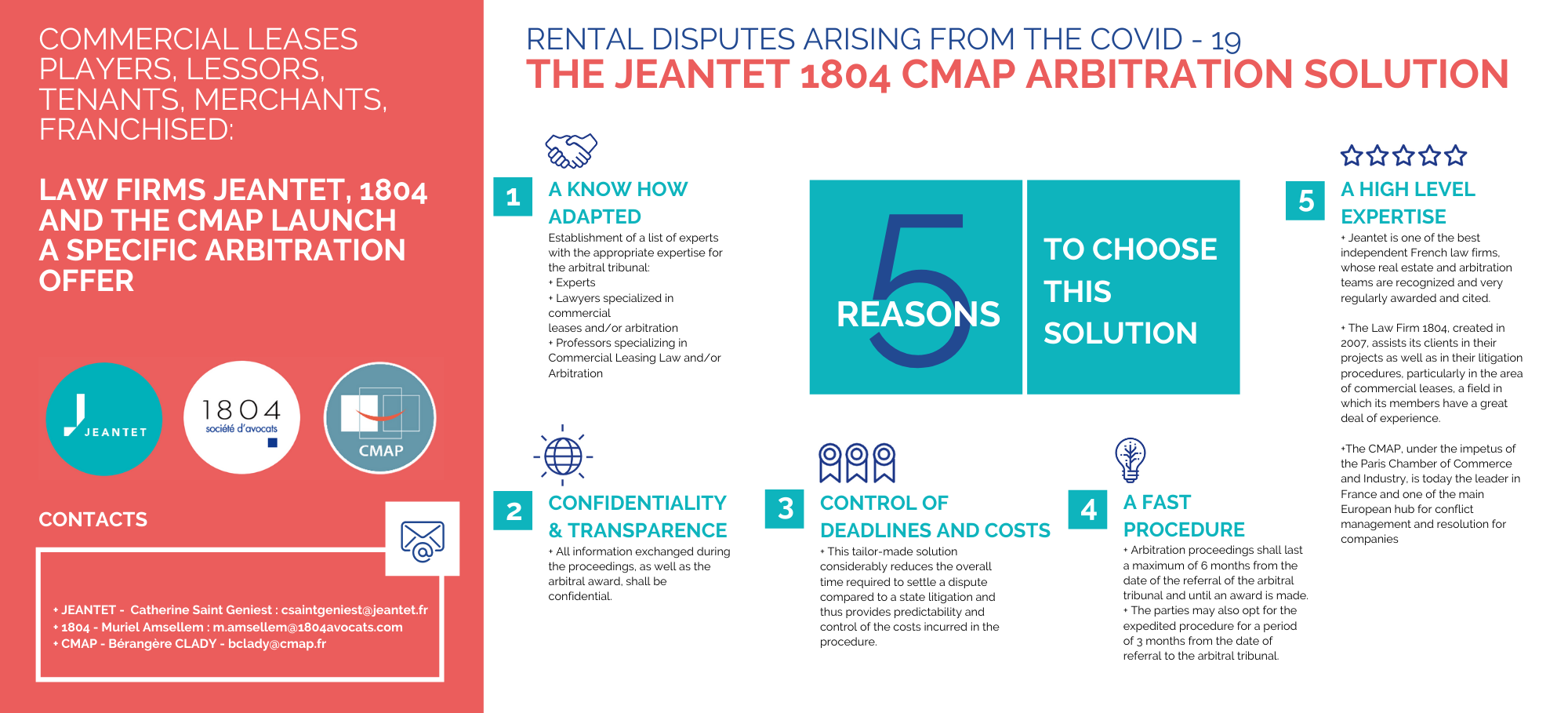Arbitration dedicated to rental disputes arising from COVID-19
Paris, le jeudi 30 avril 2020 – Tensions between landlords and tenants concerning the payment of commercial rents during the Covid-19 health crisis have been increasing in recent weeks. It is in this context that the firms Jeantet and 1804 asked CMAP, the 1st French Centre for the Resolution of Corporate Disputes, to propose a […]
Paris, le jeudi 30 avril 2020 – Tensions between landlords and tenants concerning the payment of commercial rents during the Covid-19 health crisis have been increasing in recent weeks. It is in this context that the firms Jeantet and 1804 asked CMAP, the 1st French Centre for the Resolution of Corporate Disputes, to propose a specific solution to these situations.
The provisions put in place by the government for the payment of rents leave a majority of tenants and landlords (restaurants, hotels, offices, etc.) facing many questions about the fate of rents due as of March 13, 2020, the closing date for non-essential shops.
This problem is compounded by the congestion of the courts by ongoing proceedings that have been suspended since the beginning of the containment. On 23 April, Bruno Lemaire, Minister of the Economy and Finance, appointed Jeanne-Marie Prost as mediator to assist merchants and landlords in drafting a code of good conduct, thus highlighting, more than ever, the need to make use of alternative dispute resolution methods: mediation and arbitration.
It is in this context that on the initiative of the law firms Jeantet and 1804, CMAP is setting up a specific offer of arbitration of disputes for all actors of commercial leases, lessors, tenants, merchants, franchisees, etc. The parties may have recourse to arbitration on the basis of the arbitration clause in their contract or an arbitration agreement which they may sign by mutual agreement, once the dispute has arisen.
A pool of experts will be made available to companies: lawyers, professors of law specialising in commercial leases and/or arbitration able to guarantee the parties technical knowledge of the matter by the arbitral tribunal.
This tailor-made solution considerably reduces the overall time required to settle a dispute compared to a state dispute. It therefore provides predictability and control of the costs involved in the procedure with scales adapted for this type of litigation.
In a very turbulent and uncertain economic context, the confidential nature of the proceedings and the award, as well as the possibility for the parties to request the Arbitral Tribunal to make the award by amicable composition, are all assets in the service of the parties.

